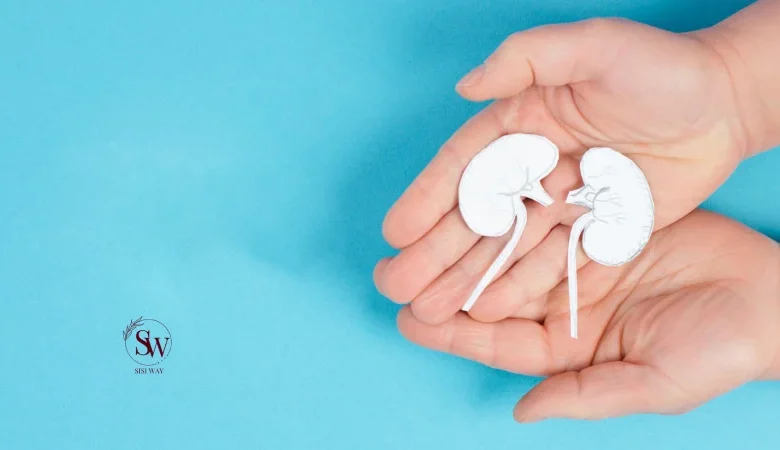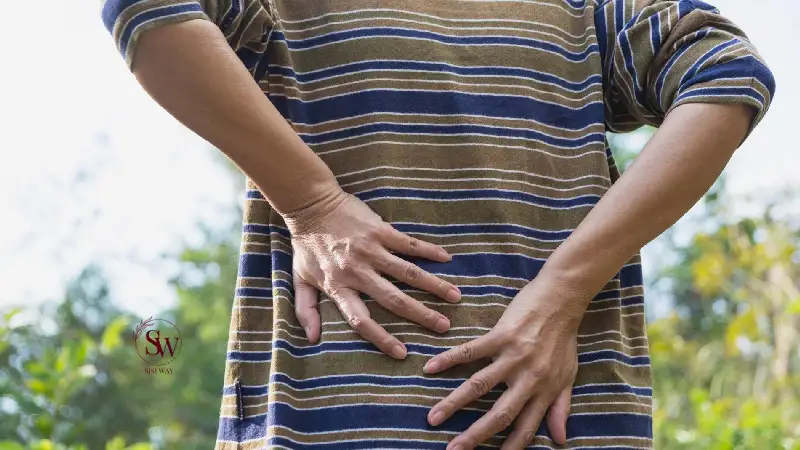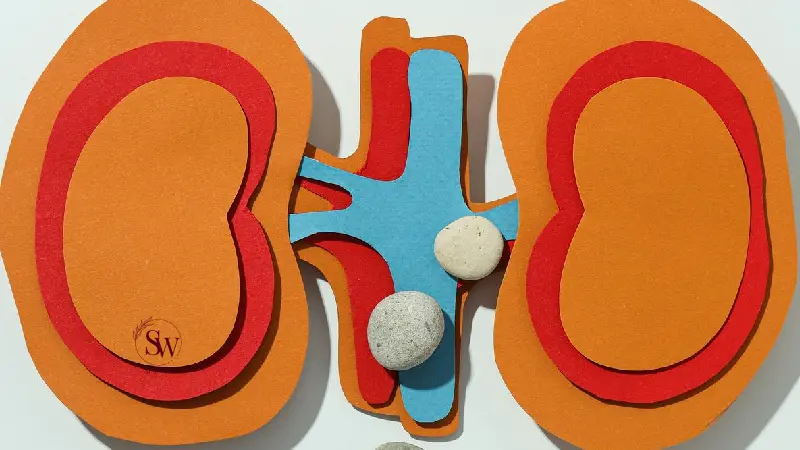Are Kidney Stones Dangerous?

Are Kidney Stones a Serious Health Condition?
Kidney stones are a common urological condition that affects millions of people worldwide. These hard deposits form in the kidneys and can cause significant pain and discomfort. While kidney stones are not typically life-threatening, they can lead to complications and should be taken seriously. In this article of sisiway, we will explore the potential dangers associated with kidney stones, their symptoms, complications, and effective prevention strategies.

Understanding Kidney Stones:
Kidney stones are solid mineral and salt deposits that crystallize in the kidneys. They form when urine becomes concentrated, allowing minerals and salts to stick together and create small, hard masses. The size of kidney stones can vary, ranging from tiny grains to larger stones that can obstruct the urinary tract.
Symptoms and Discomfort:
The most common symptom of kidney stones is severe pain, often described as waves of intense cramping or sharp pain in the back, side, lower abdomen, or groin. Other symptoms include blood in the urine, frequent urination, cloudy or foul-smelling urine, and a persistent urge to urinate. These symptoms can significantly impact a person’s quality of life and require medical attention. It should be noted that Kidney Stone Symptoms in Women differ from those in men, and it is crucial to recognize these differences and identify them promptly.
Potential Dangers and Complications:
While kidney stones themselves may not be life-threatening, they can lead to various complications that pose risks to one’s health. These complications include:
-
Urinary Tract Infections (UTIs):
Urinary tract infections (UTIs) are bacterial infections that occur in any part of the urinary system, including the kidneys, bladder, ureters, and urethra. UTIs are more common in women than men and can cause discomfort and pain. The most common symptoms of UTIs include a frequent urge to urinate, a burning sensation during urination, cloudy or strong-smelling urine, and lower abdominal pain. If left untreated, UTIs can lead to more severe complications, such as kidney infections. Prompt medical attention, proper diagnosis, and appropriate antibiotic treatment are essential for managing UTIs and preventing the spread of infection to the kidneys or other parts of the urinary system. Drinking plenty of water, practicing good hygiene, and urinating before and after sexual activity are some preventive measures that can help reduce the risk of UTIs.
-
Obstruction and Hydronephrosis:
Obstruction and hydronephrosis are conditions that can occur when kidney stones or other factors impede the normal flow of urine from the kidneys to the bladder. When an obstruction occurs, urine backs up and accumulates in the kidneys, causing swelling and potential damage. This condition is known as hydronephrosis. The symptoms of hydronephrosis can include pain in the back or side, frequent urination, urinary tract infections, and blood in the urine. If left untreated, hydronephrosis can lead to complications such as kidney damage or infection. Prompt medical intervention is crucial to relieve the obstruction and restore normal urine flow, which may involve procedures like ureteroscopy, lithotripsy, or in severe cases, surgical intervention. Timely diagnosis and appropriate treatment can help prevent long-term complications and preserve kidney function.
-
Kidney Damage:
Kidney damage refers to the impairment or deterioration of kidney function, often resulting from various underlying conditions or complications such as kidney stones, chronic kidney disease (CKD), urinary tract obstruction, or infections. When the kidneys are damaged, they may struggle to filter waste products and excess fluid from the blood effectively. Over time, this can lead to a buildup of toxins and fluid imbalances in the body, potentially resulting in serious health consequences. Symptoms of kidney damage may include fatigue, swelling in the legs or ankles, changes in urine output, high blood pressure, and electrolyte imbalances. Timely diagnosis, proper medical management, and lifestyle modifications are crucial to slow down the progression of kidney damage, preserve kidney function, and prevent the development of end-stage renal disease (ESRD), which may require dialysis or kidney transplantation.
-
Kidney Infections:
In some cases, kidney stones can increase the risk of developing a kidney infection, also known as pyelonephritis. When stones obstruct the urinary tract, bacteria can multiply and cause an infection. Kidney infections can lead to symptoms such as fever, abdominal pain, nausea, and vomiting. Prompt medical attention and appropriate treatment are necessary to prevent complications and further damage to the kidneys.
-
Urinary Blockage and Kidney Damage:
Large or multiple kidney stones can block the flow of urine, leading to a condition called urinary obstruction. This can result in a buildup of pressure in the kidneys and cause kidney damage over time. If left untreated, urinary blockage can lead to irreversible kidney impairment, affecting their ability to filter waste and maintain proper fluid balance in the body.
-
Kidney Stone Recurrence:
Once a person has had a kidney stone, they are at an increased risk of developing future stones. Recurrent kidney stones can lead to chronic kidney problems and further complications. It is important for individuals with a history of kidney stones to follow preventive measures, such as adopting a healthy lifestyle, staying hydrated, and following medical advice, to minimize the risk of recurrence and potential dangers associated with repeated stone formation. Regular monitoring and follow-up with a healthcare professional are crucial for managing kidney stone recurrence effectively.
Also read: Foods Bad for Kidney Stones
Are Kidney Stones Dangerous During Pregnancy?
Kidney stones can pose additional risks and complications when they occur during pregnancy. While they are generally not considered life-threatening, they can cause discomfort and potentially lead to certain concerns for both the mother and the developing baby.
The main concern with kidney stones during pregnancy is the potential for urinary tract obstruction. If a stone becomes lodged in the ureter, it can obstruct the flow of urine, leading to hydronephrosis (swelling of the kidney). This can increase the risk of urinary tract infections, kidney infections, and potentially impact kidney function.
The symptoms of kidney stones during pregnancy are similar to those experienced outside of pregnancy and may include severe abdominal or back pain, blood in the urine, and urinary urgency or frequency. However, diagnosing kidney stones during pregnancy can be challenging, as some symptoms may overlap with normal pregnancy discomforts.
Treatment options for kidney stones during pregnancy are limited due to the need to balance the health of the mother and the developing baby. Treatment may involve managing pain with safe medications, increasing fluid intake, and closely monitoring the stone’s position and size through imaging. In some cases, if the obstruction or pain becomes severe or if there are complications, intervention such as ureteral stenting or surgery may be necessary.
It is important for pregnant individuals who suspect they may have kidney stones to seek medical attention promptly. A healthcare professional will assess the situation and provide appropriate guidance and treatment options to minimize risks and ensure the well-being of both the mother and the baby.

Can Kidney Stones Cause Kidney Failure?
In some cases, kidney stones can lead to kidney failure, although it is relatively rare. Kidney stones typically do not cause kidney failure directly, but they can contribute to kidney damage or exacerbate pre-existing kidney conditions, ultimately leading to kidney failure.
The risk of kidney failure increases when kidney stones cause prolonged or recurrent obstruction of the urinary tract. If a stone blocks the passage of urine for an extended period, it can cause pressure to build up in the affected kidney. This pressure can impair kidney function and potentially lead to kidney damage over time.
Additionally, repeated kidney stone episodes can increase the risk of developing chronic kidney disease (CKD). CKD refers to progressive and irreversible damage to the kidneys, resulting in a decline in kidney function. If left untreated or unmanaged, CKD can progress to end-stage renal disease (ESRD), which requires dialysis or a kidney transplant for survival.
It’s important to note that the majority of individuals with kidney stones do not experience kidney failure. However, if you have a history of kidney stones or suspect kidney problems, it is crucial to seek medical attention for proper diagnosis, treatment, and ongoing management to prevent potential complications and preserve kidney health.

Prevention and Management:
Preventing kidney stones is crucial to avoid potential dangers and complications. Here are some effective strategies:
- Stay Hydrated: Drinking an adequate amount of water helps dilute urine and prevents the concentration of minerals that lead to stone formation. Aim to drink at least 8 cups (64 ounces) of water per day, or more if you live in a hot climate or engage in intense physical activity.
- Follow a Balanced Diet: Maintain a diet that is low in salt, oxalate-rich foods (such as spinach, rhubarb, and chocolate), and animal protein. Instead, focus on consuming a variety of fruits, vegetables, whole grains, and lean proteins.
- Limit Soda and Alcohol: Excessive consumption of soda and alcohol can increase the risk of kidney stone formation. Moderation is key, so limit your intake of these beverages.
- Seek Medical Advice: If you have a history of kidney stones or experience symptoms, consult a healthcare professional. They can provide appropriate diagnosis, prescribe pain medication if needed, and offer guidance on further treatment options.
FAQ
- Are kidney stones dangerous?
While kidney stones themselves are not typically life-threatening, they can cause significant pain and discomfort. However, complications associated with kidney stones, such as urinary tract infections, kidney damage, and obstruction, can pose risks to one’s health.
- Can kidney stones lead to kidney failure?
In some cases, kidney stones can contribute to kidney damage and, over time, may lead to kidney failure. Prolonged or recurrent obstruction of the urinary tract by kidney stones can impair kidney function and increase the risk of chronic kidney disease, which, if left untreated, can progress to end-stage renal disease (ESRD).
- How can kidney stones be dangerous during pregnancy?
Kidney stones during pregnancy can lead to urinary tract obstruction, which can cause complications such as hydronephrosis, urinary tract infections, and potential impact on kidney function. Proper medical attention and management are crucial to ensure the well-being of both the mother and the developing baby.
- Are kidney stones dangerous in the elderly?
Yes, kidney stones can be dangerous in the elderly due to the increased risk of complications such as urinary tract infections, kidney damage, and obstruction. Prompt diagnosis, treatment, and management are necessary to minimize risks and ensure the well-being of elderly individuals with kidney stones.
Conclusion:
While kidney stones may not be inherently life-threatening, they can lead to complications that pose risks to your health. Recognizing the symptoms, seeking medical attention, and adopting preventive measures are essential for managing kidney stones effectively. By staying hydrated, following a balanced diet, and seeking professional advice, you can significantly reduce the risks associated with kidney stones and maintain optimal kidney health.



